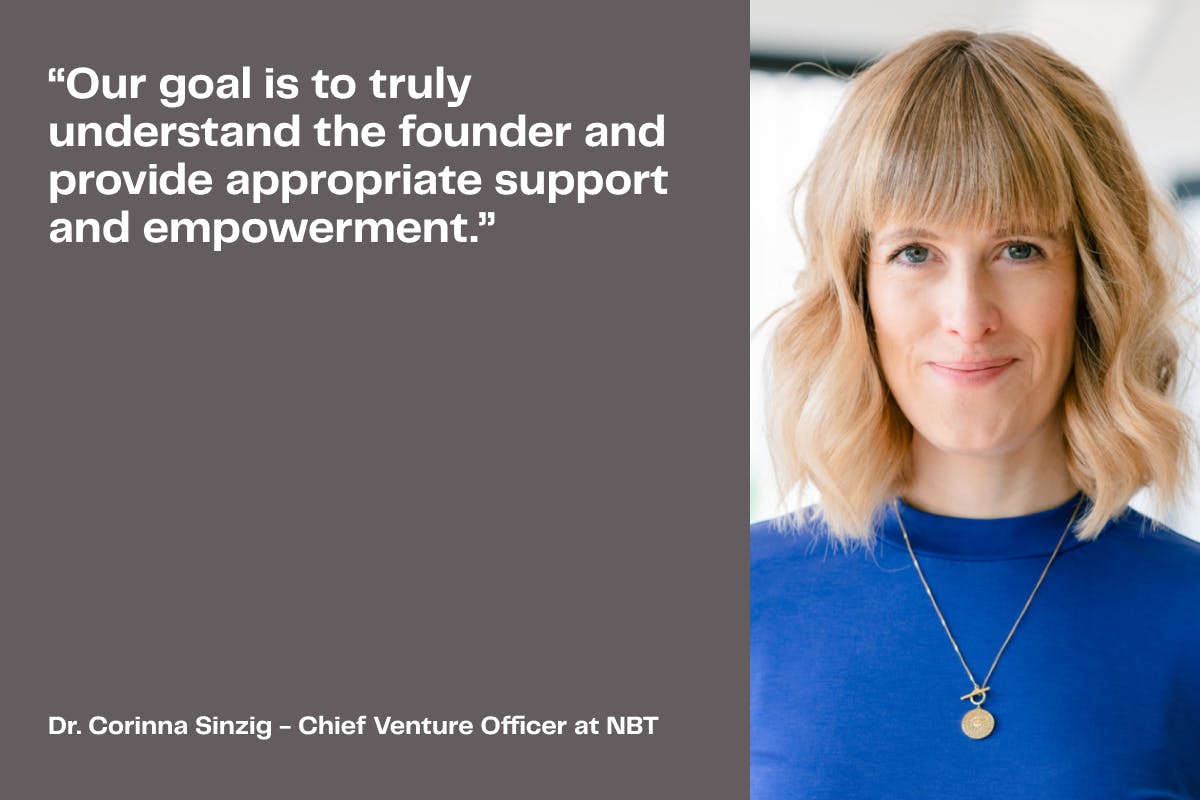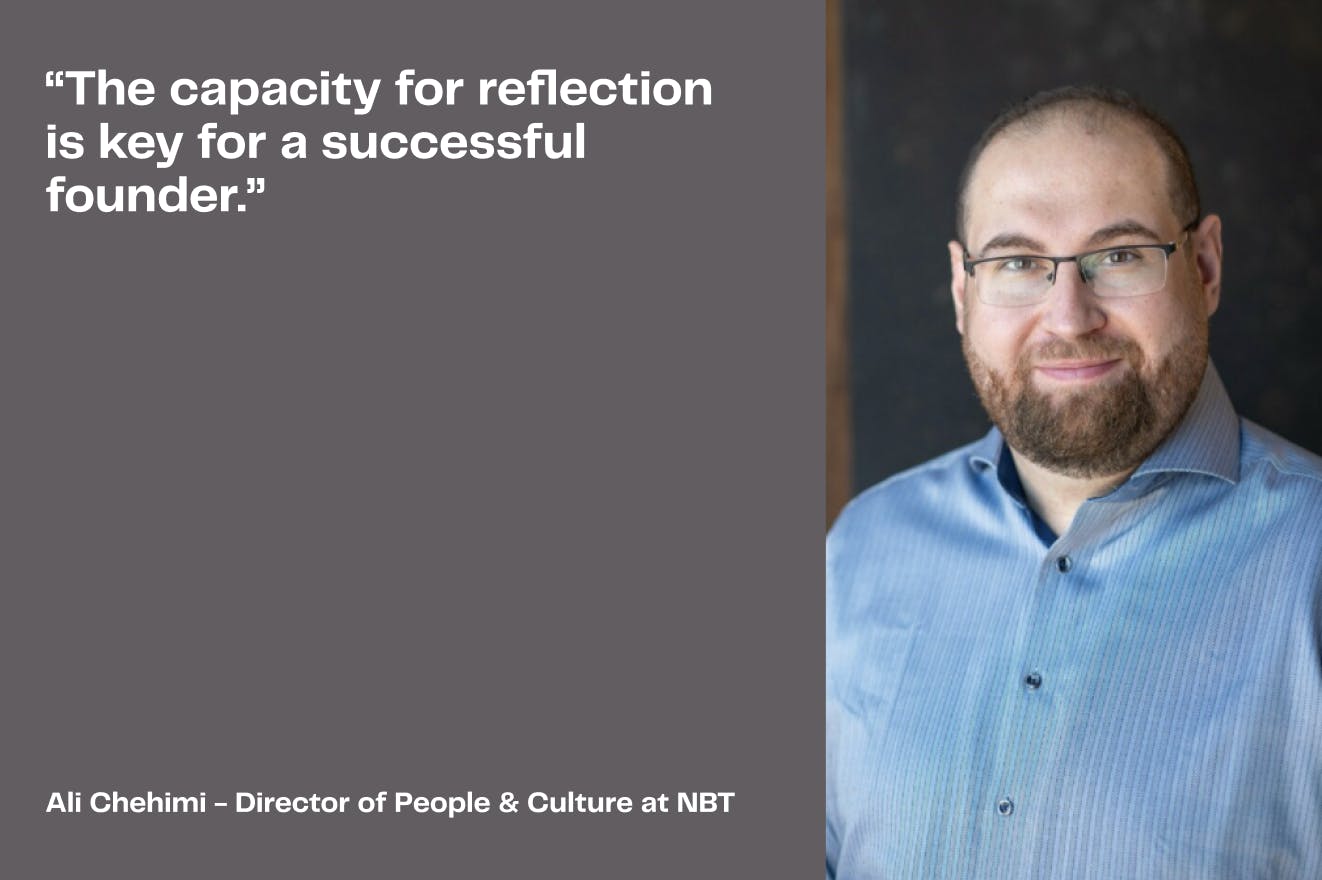The Hidden Driving Force of Startups: The Role of Founder Archetypes

At the heart of every startup, beyond innovative ideas or disruptive technologies, are the people who drive them forward. "The most important success factor of a startup is the people involved in it." – This statement underscores the significant influence that the founders' personalities have on a company. Each founder embodies distinct character traits that shape their actions, their responses to challenges, and ultimately, the success of their venture. But how do these personalities specifically affect a company's trajectory? And can certain traits be cultivated? To address this, the Venture Studio Next Big Thing AG (NBT) has crafted unique founder archetypes, integrating them as a framework within their incubation program, Visionaries.
Next Big Thing AG: An Incubation Model that Shapes Personalities
NBT has a deep understanding of the need to promote the individual personality structure of founders. However, the numerous models for classifying personalities such as the Myers-Briggs framework or the Big 5 Personality Test did not exactly meet the requirements that the NBT team had for their venture development.
Through years of experience in supporting founders, the venture studio has therefore developed its own archetype model that identifies four fundamental personality types: the Pacemaker, the Leader, the Ambassador, and the Expert. This classification serves as a matrix to better assess potential candidates and provide more targeted support during the Visionaries program.
Why Founder Archetypes are Crucial
Why does NBT place such great value on identifying and promoting these archetypes? The answer is provided by Dr. Corinna Sinzig, Chief Venture Officer at NBT: "We recognize the importance of personality development and community building for entrepreneurial success. Our goal is to truly understand the founder to provide the appropriate support and empowerment.”

Incidentally, this applies to both target groups addressed by the Visionaries program: Serial entrepreneurs and subject specialists.
Serial entrepreneurs bring with them extensive experience from various ventures, including those that were not successful. Their knowledge and ability to adapt and learn from their failures make them a valuable asset to any start-up. On the other hand, subject specialists have specific industry knowledge, business awareness, and a solid professional network. Their deep understanding of a specific field increases the chances of success of any start-up. Even if the starting point and therefore the founder archetypes are very different: Personal development plays an important role for both groups.
By assessing and understanding the different archetypal elements, NBT aims to create a cohesive environment of like-minded individuals with a common goal. Not only does this ensure that the right people are given opportunities, but it also provides the opportunity to bring together founders who complement each other well based on their personality traits.
The Four Founder Archetypes According to NBT
The Pacemaker: The Dynamic Pathfinder
Pacemakers are the driving force behind the operational progress of a startup. With their agile and proactive nature, they ensure that projects are driven forward with momentum. Their ambition and resilience are infectious and driving. Pacemakers bring speed to the project and are not discouraged by negative or difficult circumstances. They have the goal of achieving something significant.
The Leader: The Backbone of the Team
A leader is more than just a boss – he is the strategic mind and the emotional center of the team. Leaders have a good feel for the dynamic relationships within the team and can make the best possible use of the strengths of the individual members. They are able to motivate their team members effectively. Their ability to delegate tasks, trust expert opinions, and empathy make a leader a valued and effective founder.
The Ambassador: The Inspiring Communicator
The ambassador has a convincing personality that radiates self-confidence and self-assurance. With adaptive communication skills and emotional maturity, they present the company both internally and externally in an authentic and convincing manner. The ambassador masterfully knows how to captivate his listeners in a powerful and emotional way and win them over to the startup's vision.
The Expert: The Knowledgeable Problem Solver
Experts are the source of knowledge for the startup. They are highly qualified in their field and can impress with their in-depth specialist knowledge. Experts are quick to learn and can analyze and solve complex problems. They are focused and work purposefully to implement his ideas. Their structured way of working and their ability to prioritize enable them to make quick decisions and strategically advance the company.
NBT's Approach to Personality Development
Ali Chehimi, Director of People & Culture at NBT, explains the procedure: "A gut feeling is not enough in the hiring process. It's about recognizing a founder's potential - not just seeing what they have already achieved, but identifying what they can achieve in the future, taking into account new experiences and further personal development."
NBT’s team therefore goes through a specific assessment in the course of the multi-stage application process of the potential entrepreneurs. The answers are filled into a matrix to identify the parts of the founder archetypes pacemaker, leader,ambassador and expert in a founder.
The questions are designed in such a way that they not only uncover strengths, but also identify potential red flags. They provide important clues as to which personality traits the founder should work on. Such in-depth insights enable NBT to create an individual track within the Impact Challenge and Visionaries Program for each founder.
Ali points out that this is a continuous process: "Each founder has a unique combination of these archetypes, and their relative importance may vary over time. It is essential to validate and adjust the initial determination from the hiring process and undergo multiple assessment processes during the Visionaries Program.” The archetypal composition changes while the applicants learn to adapt and evolve in the course of the intensive collaboration.
Giving feedback on areas for further development from the team is also fostering a culture of continuous learning and growth. This is why the venture development, with the collaboration of the various stakeholders from the NBT team, carries out regular reassessments and feedback loops.
Founder Archetypes: Diversity as the Key to Success
The synergy of combining different archetypes within a founding team can lead to greater success. While a leader's personality may initially seem like the perfect fit, in reality, a balanced blend of all archetypes is preferable.
A leader might have the capability to guide and inspire a team, but lacking the adaptability of a pacemaker, the communicative finesse of an ambassador and the technical depth of an expert could result in a shortfall of flexibility, innovation, and precision.
“We champion the development of a well-rounded team, where each archetype is represented”, says Ali. “This approach allows each individual's strengths to fully unfold.” This harmonious collaboration is key for startups to swiftly adapt to the ever-evolving market while continuing to innovate.
Reflection and Resilience – The Path to the Top
Ultimately, what makes a successful founder? There's no one-size-fits-all answer to this question, admits Ali. “However, it's clear that attributes such as the ability to handle criticism, a willingness to learn, resilience, communication skills, and reflective thinking play a fundamental role.” A successful founder must be capable of receiving criticism and learning from it. They need to be constantly willing to evolve and face new challenges.
Resilience is crucial for overcoming setbacks and not being discouraged by failures. They must also be adept at building and maintaining relationships while keeping the needs and expectations of all stakeholders in view. “I would say the capacity for reflection is key”, Ali sums up. “It allows a founder to question their actions and strive for continuous improvement."

What qualifies you as a founder? How do you want to change the world? Find out! Apply for our incubation programs and get ready to embark on your entrepreneurial journey!




